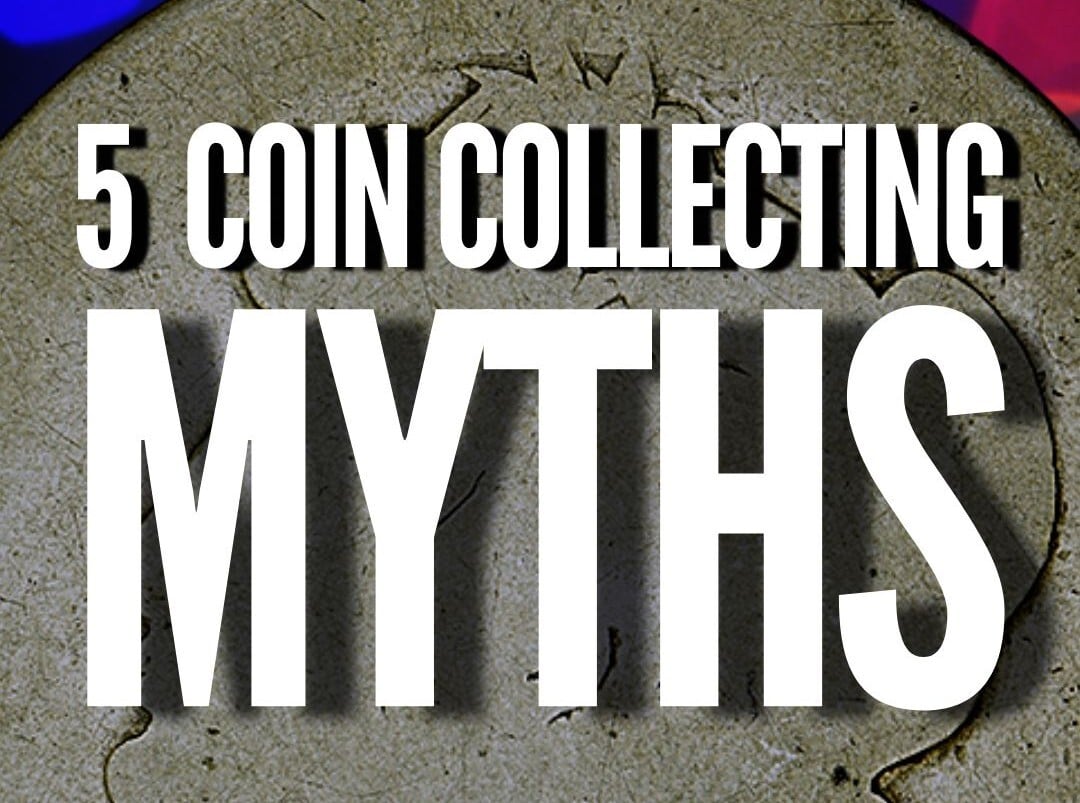5 Coin Collecting Myths
There are plenty of myths out there about coin collecting, many of which are either objectively wrong or can dissuade new collectors. In this post we’ll take a look at some of the most widely repeated ones and address why they’re incorrect.
You have to be rich to be a collector.
Most headlines focus on expensive, record-breaking coins, but that’s not what the average collector focuses on. In fact, you’ll find that the vast majority of the hobby is made up of people applying very reasonable budgets to their collecting journey. It’s even possible to find collectible coins in your pocket change, paying no more than face value. All that matters is that you’re finding joy in whatever you choose to collect –and if that’s something inexpensive, all the better!
You should clean your coins.
If you take nothing else away from this article, let it be this: do not clean your coins. Doing so can significantly decrease the value unless done by an expert in very specific, market-acceptable ways. If you feel a coin is in need of conservation, talk to a dealer – they’re certain to reassure you that it’s better as it is. The market hugely values originality in coins, so the same look that you might find unattractive, someone else will love.
Infomercials are a good place to buy coins.
Of all the places you could buy coins, infomercials are rarely an ideal place to do so. Telemarketers and home shopping networks dramatically mark up their prices, then oversell how rare their product is. If you happen to see something you’re interested in on an infomercial, look online or ask a dealer if they can help you find it – it’s all but guaranteed that they can, and at a much lower price. It is worth noting, however, that while these companies often charge above retail prices for their wares, they do help introduce new people to the hobby, and provide a very convenient means for purchase and delivery of coins.
You’re likely to find something valuable in pocket change.
We’ve all been there – scrolling through our newsfeeds and seeing articles and videos online about “Thousand Dollar Coins You Could Find in Your Pocket,”. Or, we stumble upon a 1943 penny for the first time and think we’ve got something really rare. In truth, it’s extremely uncommon to find something of high monetary value in your pocket change. That 1943 cent that looks silver is actually steel, and isn’t worth much at all.
If you think you’ve found something exceptional, do your dealer a favor and look it up online before calling them. There are plenty of websites and price guides ready to help you identify and price what you have. If you’ve researched it and still think it’s worth something, then you should contact a coin dealer to take a look.
The older it is, the more it’s worth.
Age alone doesn’t determine the value of a coin. For example, many ancient coins can be found for $10 or less, while the coin holding the record for the most expensive piece sold at auction is from 1933. (Though a physical 1,000 Bitcoin has recently been valued at $48 million!) The condition, original/surviving mintage, and demand have a much bigger impact on value than date alone.
At the end of the day, the biggest takeaway should be to perform due diligence. Most of the myths highlighted in this post are easily disproved with a quick search online (as are most other collecting fallacies you’re likely to hear). If you’re diligent about learning from reputable sources like the American Numismatic Association (ANA), American Numismatic Society, or the Newman Numismatic Portal, you’ll avoid a lot of the pitfalls less legitimate sites may lure you into.
Happy Collecting!
About the American Numismatic Association
The American Numismatic Association is a nonprofit organization dedicated to educating and encouraging people to study and collect coins and related items. The Association serves collectors, the general public, and academic communities with an interest in numismatics.
The ANA helps all people discover and explore the world of money through its vast array of educational programs including its museum, library, publications, conventions and numismatic seminars and webinars.
Register for FREE Numismatic Webinars and More.
The ANA’s eLearning platform offers on-demand classes, webinars, and expert insights designed for every level of collector. Expand your knowledge, anytime, anywhere. Learn more.


.jpg?width=760&height=253&name=Copy%20of%20Slider%20%20Banner%20%20Join%20%20Membership%20(1200%20x%20400%20px).jpg)
